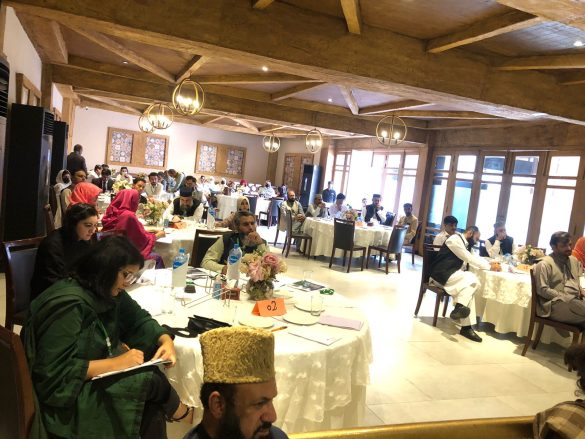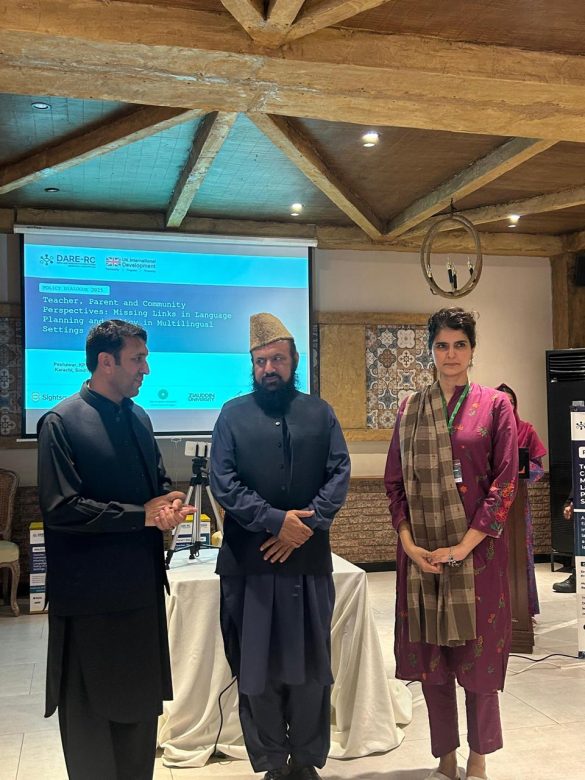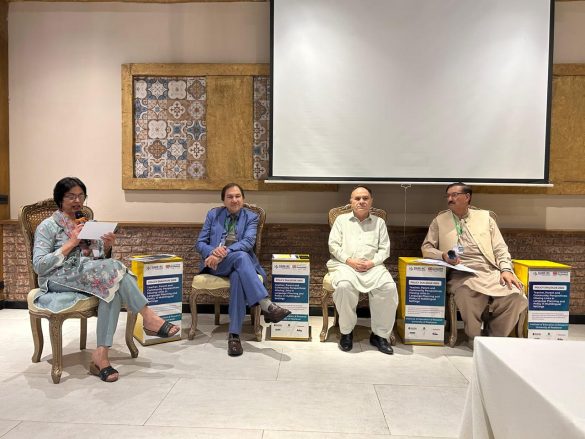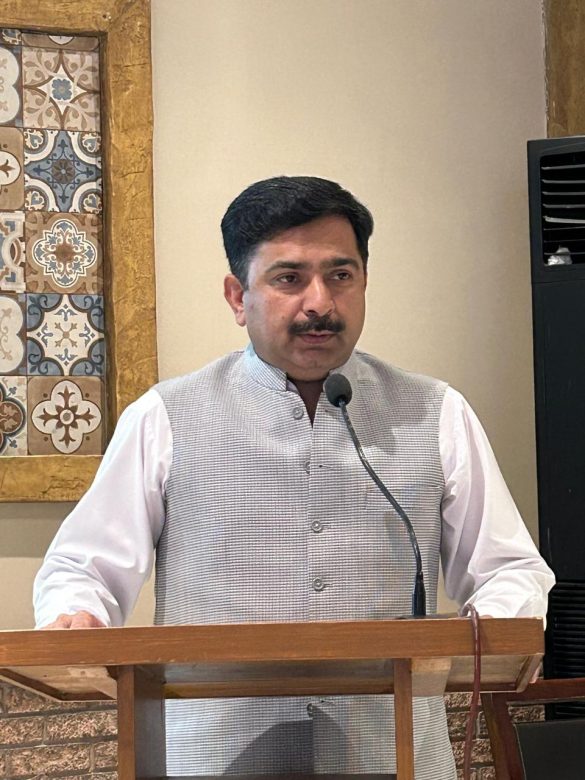Peshawar, 25 October 2025 -Durbeen, the University of Oxford, and the Institute of Education and Research (IER), University of Peshawar hosted a policy dialogue today to highlight the importance of multilingualism in improving learning outcomes and promoting inclusive education in Pakistan. The event was part of a major research initiative DARE-RC led by Dr Fauzia Shamim from Durbeen, Karachi and Dr Aliya Khalid from the University of Oxford funded by the UK Government’s Foreign, Commonwealth & Development Office (FCDO) and implemented by Oxford Policy Management (OPM). The dialogue brought together policymakers, academics, education experts, and community representatives to discuss the role of language in education reform.
The event was formally opened by Dr Hafiz Muhammad Inamullah, Director of IER and Regional Lead for KP and Ms Salma Alam CEO of Durbeen and the institutional lead of the project. In the opening remarks, the speakers emphasised the urgent need to bridge the gap between home and school languages, noting that sustainable education reform must begin by recognising the language of the learner.
Speaking about the importance of multilingualism and the need for an education system that treats language as a key pedagogic tool, Dr Fauzia Shamim (Durbeen, Karachi Pakistan) also observed: ‘Most teachers rely on local languages, and translanguaging is common but unrecognized in policy or training. The study highlights that using children’s home languages boosts confidence and understanding, emphasizing that multilingualism should be celebrated rather than suppressed’. Further underlining the social and cultural value of language, Dr Aliya Khalid (University of Oxford) stated, “Any approach to make education inclusive for all children must recognise its importance not only in classrooms but also in communities.”
Secretary Elementary and Secondary Education KP Mr Muhammad Khalid Khan was also in attendance acknowledged that the education sector continues to face challenges related to implementation, resources, and policy coherence. He discussed the tensions between national and regional languages, noting that while Pashto and other languages are widely understood in a landscape of multilingualism a balanced approach needs to be adopted. He noted that addressing linguistic diversity through informed policy reform is central to improving learning outcomes. In this regard he invited the project team to work collaboratively on supporting this reform offering his strong support for implementation. Former MPA Nasir Baz Khan the speaker expressed his respect for all languages, especially Pashto, and advocated for the inclusion of regional languages in the Constitution. He highlighted the cultural value of Pashtunwali and recalled Wali Khan’s efforts for linguistic rights, which were later neglected after a government change. A panel discussion which invited language experts and activists Dr Gulzar Jalal, Mr Fakhruddin Akhunzada and Dr Sohail Khan emphasised on the need of making regional languages more central to the process of formal schooling.
The dialogue, held at Monal, Peshawar, shared emerging findings from the ongoing research conducted in Khyber Pakhtunkhwa and Sindh. The study highlights that inclusive education in Pakistan needs language-based reforms respecting provincial diversity, recognition of home languages in early learning, gradual introduction of Urdu and English, and coherence across the education system. The dialogue ended with a shared commitment to language-inclusive reforms for equitable education.
454
previous post





